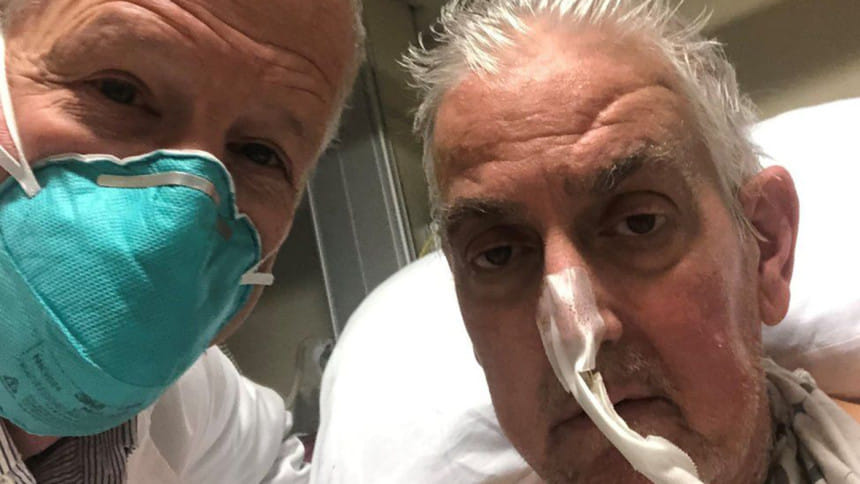Man gets successful implant of pig heart in world’s first

US surgeons have successfully implanted a heart from a genetically modified pig in a human patient, a first of its kind procedure, the University of Maryland Medical School said Monday.
The surgery took place Friday, and demonstrates for the first time that an animal heart can survive in a human without immediate rejection, the medical school said in a statement.
The patient, David Bennett, had been deemed ineligible for human transplant.
The 57-year-old Maryland resident is being carefully monitored to determine how the new organ performs.
"It was either die or do this transplant. I want to live. I know it's a shot in the dark, but it's my last choice," he said a day before the surgery.
Bennett, who has spent the last several months bedridden on a life support machine, added: "I look forward to getting out of bed after I recover."
The Food and Drug Administration granted emergency authorization for the surgery on New Year's Eve, as a last ditch effort for a patient who was unsuitable for conventional transplant.
"This was a breakthrough surgery and brings us one step closer to solving the organ shortage crisis," said Bartley Griffith, who surgically transplanted the pig heart.
"We are proceeding cautiously, but we are also optimistic that this first-in-the-world surgery will provide an important new option for patients in the future."
Bennett's donor pig belonged to a herd that had undergone a genetic editing procedure to knock out a gene that produces a particular sugar, which would otherwise have triggered a strong immune response and led to organ rejection.
The editing was performed by biotech firm Revivicor, which also supplied the pig used in a breakthrough kidney transplant on brain dead patient in New York in October.
The donated organ was kept in a machine to preserve it ahead of surgery, and the team also used a new drug along with conventional anti-rejection drugs to suppress the immune system and prevent it rejecting the organ.
It is an experimental compound made by Kiniksa Pharmaceuticals.
About 110,000 Americans are currently waiting for an organ transplant, and more than 6,000 patients die each year before getting one, according to official figures.
To meet demand, doctors have long been interested in so-called xenotransplantation, or cross-species organ donation, with experiments tracing back to the 17th century.
Early research focused on harvesting organs from primates -- for example, a baboon heart was transplanted into a newborn known as "Baby Fae" in 1984, but she survived only 20 days.
Today, pig heart valves are widely used in humans, and pig skin is grafted on human burn victims.
Pigs make the ideal donors because of their size, their rapid growth and large litters, and the fact they are already raised as a food source.

 For all latest news, follow The Daily Star's Google News channel.
For all latest news, follow The Daily Star's Google News channel. 



Comments